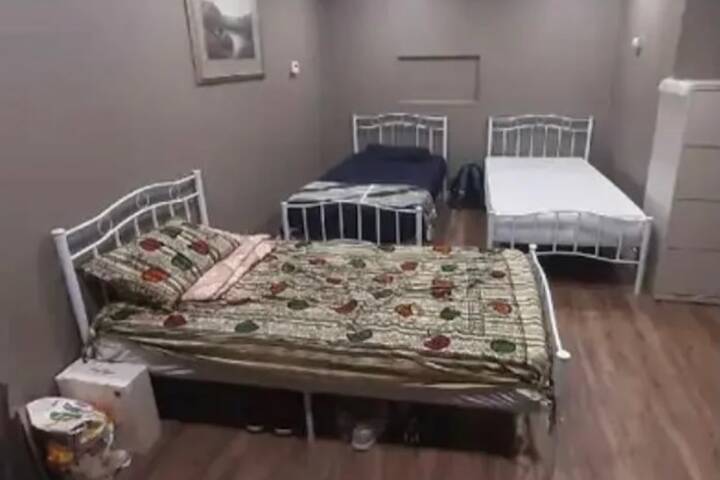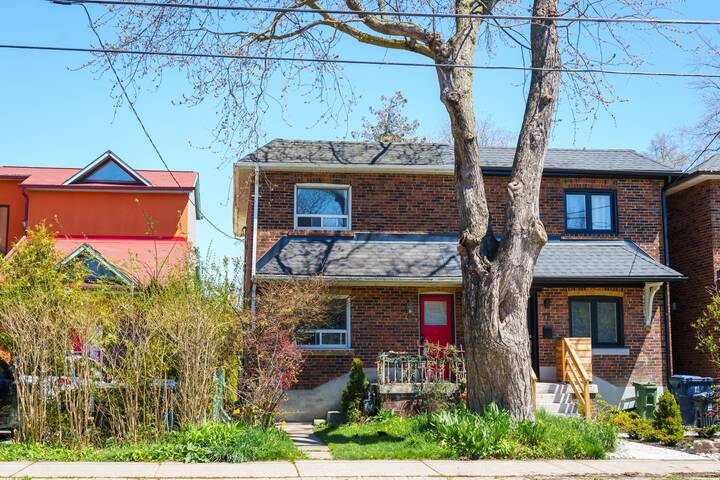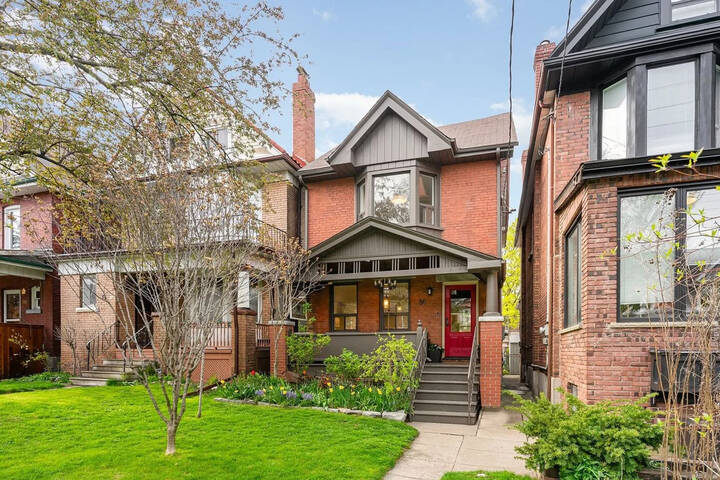
This is what you need to make per hour to afford a two bedroom apartment in Toronto
Keeping a roof over one's head is growing harder and harder for the estimated third of all Canadian households who rent their homes, according to one of the country's leading think tanks — especially in major metropolitan areas.
A report released on Thursday by the Canadian Centre for Policy Alternatives (CCPA) reveals that typical full-time, minimum-wage workers are currently unable to afford two-bedroom apartment units in all but three per cent of neighbourhoods across Canada.
In Toronto, an employee earning the province's minimum wage of $14 an hour would need to work a whopping 96 hours per week to afford a two-bedroom apartment (or 79 hours for an equivalent one-bedroom), putting the city's average "rental wage" at roughly $33.70 per hour.
Those who make less than $33.70 per hour but require more than one bedroom — say, single parents with children or elders living at home — are either priced straight out of the city or forced to spend way beyond the government's recommended 30 per cent of before-tax income on rent.
And we're not talking about swish downtown condos here, either: Someone living in a two-bedroom unit along Toronto's waterfront would need to earn roughly $53 per hour, according to CCPA's analysis, while similar units in the Bay Street corridor would require $73.17 per hour to remain affordable.
From @DavidMacCdn : "Canada's rental market is, to say the least, unaccommodating." With map of Toronto's #rentalwage by neighbourhood and link to cross-Canada interactive maps: https://t.co/FcHQAwQPvB @ccpa #canlab #cdnpoli #housing pic.twitter.com/F2bAqPNoZK
— Stuart Trew (@StuJT) July 18, 2019
"Everyone deserves a decent place to live," reads the report, which was authored by CCPA's senior economist David Macdonald. "The two-bedroom apartment therefore serves as a proxy for various family types in Canada, since it offers a modest amount of room for multiple living arrangements."
"A sole income earner working full time should be able to afford a modest two-bedroom apartment for their family in a country as rich as Canada," continues the report, which notes that two-bedroom apartments make up 50 per cent of all rental units across the country.
"But in most Canadian cities, including Canada's largest metropolitan areas of Toronto and Vancouver, there are no neighbourhoods where it is possible to afford a one- or two bedroom unit on a single minimum wage."
The CCPA looked at all 795 Canadian neighbourhoods where rental and income data are available to determine that the average "rental wage" across the country is $22.40 per hour.
"Of course, if a worker isn't working full time then their hourly wage would have to be higher than this to pay for an average apartment using 30 per cent or less of their income," notes Macdonald.
The #rentalwage is so high that in 97% of neighbourhoods a min wage worker can't afford a modest 2bdrm apt. In 31 of Canada's 36 biggest cities have ZERO neighbourhoods where apt affordable at min wage. Check out the interactive map @ccpa https://t.co/w5uPVtGFCl
— David Macdonald (@DavidMacCdn) July 18, 2019
Most likely to be affected by the squeeze are young adults, recent immigrants, lower income families and people who have just moved to a new city, says the CCPA, particularly those who live in downtown areas — "close to most jobs."
"High housing costs, having priced many millennials out of home ownership, are also contributing to increased demand for rental units— and increased rental costs," notes the report.
"Rising rents alongside a shift from purpose-built rental builds to condominiums has made living in Canada's cities challenging for renters."
The solution? More apartments.
"Ultimately, there is no substitute for building new dedicated affordable housing," concluded Macdonald. "[This] would cool down rental prices and increase the stock of housing available to the millions of families who choose or who are forced to rent."
Latest Videos
Latest Videos
Join the conversation Load comments







